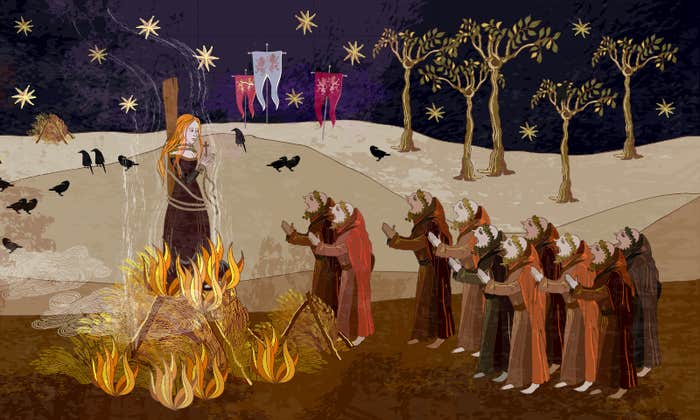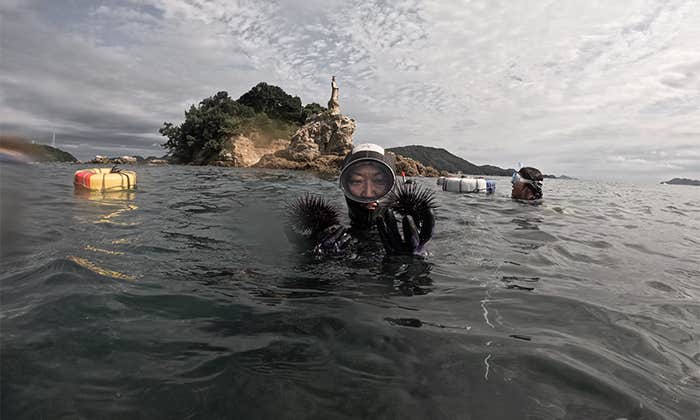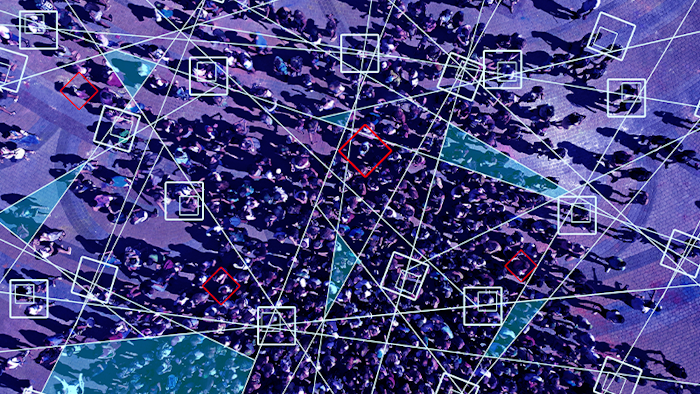For millions of refugees, life is nothing if not uncertain. They come to a new world with two purposes: escaping one set of realities, and building a new set. This story is about a family who fled Somalia during the Civil War of the 1990s. They settled in a Somali neighborhood in Nairobi, Kenya’s capital, and tried to instill in their children the morals of their home country. Yet seemingly minor events interfered. The family was forced to understand that big changes start by allowing small ones.
I grew up in a crowded home, in a crowded building, in a crowded neighborhood. Our two-bedroom flat was on the fourth floor of an eight-story building in Eastleigh, a Somali neighborhood in eastern Nairobi. I was one of eight children. I shared a bedroom with four or five siblings at a time. I had four older sisters: Fadumo, Anab, Hiran, and Mulki. My official name is Maryam but I was given the nickname Kayf because it was the first word my father uttered upon hearing the news of my birth. Kayf is an Arabic word that translates closest into the interjection, “How?!” Apparently, he had muttered, “how… how… how is it possible that it is yet another girl?” None of the girls before me were desired and I was the least welcome of us all. My father’s prayers were answered; after me came three boys: Mohammed, Jamil, and Elmi.
In a one-bedroom flat on the third floor of the same building lived Hawa, Father’s second wife. Hawa was about fifteen years younger than my mother and had a round face, perfect white teeth, large brown eyes, and a curvy figure. She had two girls from her first marriage to Hussein, Father’s younger brother. When Hussein drowned at sea on his way from Kismaio, Somalia to Mombasa, Kenya, Father proposed to Hawa and she accepted. Mom needed no explanation. She was familiar with the code: a man had to protect the widow of his brother and his brother’s children. She took care not to comment on Hawa’s beauty or youth. Hawa then bore Father three boys.
Everybody in our crowded building was between homes, sometimes for a decade or two. They had fled the war in Somalia; many had planned to go back home when peace returned but now gave up all hope of that. Our neighborhood was dusty when dry and muddy when it rained. It was noisy and filthy, and, in the courtyard, the smell of sweet fried mandazi and sambus combined with the scent of washed laundry drying on the clotheslines.
Father was frequently in transit. He delivered cargo to Uganda and often drove at night on the dangerous Highway 8 from Nairobi to Kampala. Without his money, Mother had to draw out the muqmad to feed so many mouths. And when he came back she merrily hurried to the market.
Much of our family’s social life transpired there. We changed money, bought khat for Father and food for the rest of the family. It was there that Mother would run into cousins and stop to chatter while the children ran between stalls. The sellers liked us and one often gave me small gifts. One time it was a package with a set of letters. “For school,” she said. I took the package instinctively. I attended the neighborhood schools but we didn’t learn much there. It was not unusual for girls to stop at 13 when their parents and relatives would start thinking about how to marry them off. And I was nearly that age.
But my mother treated me differently. When I sat in the kitchen glued to a book, Mother would say, “Kayf is learning for us all.” When I leaned into the old television set, watching movies and the
news about what went on in the world, in Europe and America, she’d say, “Kayf is our ambassador.” And she wouldn’t be mad if I didn’t help my sisters clean the apartment walls when kitchen smoke clouded them with soot. Four girls were enough to tidy up after three rambunctious and mischievous boys. But Mother was concerned about my soul. You see, all these labors, the endless laundry and cooking, was intended to earn us a place in janno, the afterlife. She would say to Fadumo, the eldest, “Help your baby sister Kayf be a better Muslim.”
It was not unusual for girls to stop school at 13 when their parents and relatives would start thinking about how to marry them off. And I was nearly that age.
Hawa and her brood often spent the evenings with us. They came to drink mother’s tea and eat mother’s mandazi, while Hawa gossiped about others in the building, usually accusing them of acting like infidels. I was often her target.
Mother remained unruffled on such occasions. She would offer Hawa and her brats more tea and sweet coconut cookies. She’d say, “Oh, we are all family.” I, however, felt my blood boil and did my best to not snarl, but Mother was insistent that we must all get along. Even when Hawa would saunter into the house to boast how she was preparing for Father’s return, Mother would be gracious. She would make it so that everyone knew the older first wife was wiser and more pious than the second. It was part of Mother’s personality to respond to any difficulty by leaving it in God’s hands with the catch-all phrase, “Inshallah.”
One morning, Father was in the kitchen with Mohammed balanced on his knee, showing him the Koran and talking to Mother. He’d driven the nine hours from Uganda all night, yet he was cheerful. The owner of the factory was Kenyan but his right hand man was Hawa’s third cousin, one of our tribe. A delivery of concrete made at just the right time had earned Father a hefty commission. He felt vindicated after many years of hard work.
“Come by, Maryam,” he was the only one who called me that. “Bring your father his ablution kettle.”
“Now,” he said to all, “now that there’s some money, the boys can go to secondary school.”
I saw Mother watching me from the stove where she was stirring the midday meal. I made eye contact with her, and behind the look of a peacemaker there was also the steady gaze of determination.
When Father and the boys left, and Fadumo and I were folding the clothes from the clothesline, Mama said to me, “Kayf, I went to this year’s PTA. I heard what your teacher said. You are gifted. The money Papa made is for Mohammed, Jamil, and Elmi, but I will squeeze some for you so you can continue to learn.”
Mother was concerned about my soul. You see, all these labors, the endless laundry and cooking, was intended to earn us a place in janno, the afterlife.
To this day I don’t know how she did it. The following week, my mother and I donned our hijabs, making sure we were covered head to foot, and walked to the bus stop. The secondary school was in Parklands, a distant bus ride away.
Up to then my life had been confined to a few trips to downtown Eastleigh. The girls of the neighborhood and I spoke the same language. We knew each other’s families and I knew my duties. After I became a woman, I woke up before dawn to pray with my sisters. Fadumo taught me to spit out my saliva during Ramadan so I didn’t void my fasting record during the holy month. My world was complete. Yet I felt the tug of the possibility that the outside offered.
As I stepped into the new school, I tried to picture my future classmates. I’d seen those girls on bus stops with their mothers, wearing make up and high heels. They smiled. They even laughed in public. They didn’t cover their faces or their dress.
A very friendly classmate named Jane invited me to eat lunch with her and her friends. I hadn’t known about Harry Potter before meeting them. I listened enrapt to their conversations about witches and wizards. They wanted to be Hermione. I wanted to wave a wand and be like them. Jennifer lent me books. Amber gave me clothes. First, a short sleeve top. Then a short skirt. Then high heel shoes. Sometimes I felt so comfortable in the Parklands life, as I called it, that I forgot to put on my hijab again when coming home.
On a Friday afternoon, Jane invited me to go to the cinema with the girls the next day. Saturdays I went to Koran school with my sisters. I had to figure out a way out. I told Mother I was going to sing songs in praise of the prophet at a mosque downtown. I made it sound like it would be impolite not to go and a letdown for the religious students at school who went to so much trouble to organize it. And once I lied the first time, it was easier to lie again. One afternoon I had a project at the library. Another, I needed to be present at a student meeting. I counted on my mother’s credulity.
I listened enrapt to their conversations about witches and wizards. They wanted to be Hermione. I wanted to wave a wand and be like them.
Occasionally I would catch a glimpse of Hawa when exiting the school bus. With my luck, it would be on the day I’d forgotten to put the hijab back on. She came to the flat that evening, clearly angered and in one of her mean moods. We were sitting around the kitchen, drinking tea. Father was away on another trip. I had my schoolbook balanced on my knee. Hawa stuck her finger straight into it.
“Have you no shame taking your hijab off when you travel?” she faced me.
I looked up. No one else said anything—none dared.
“If people see she’s not wearing it, it’ll reflect badly on my daughters,” she announced to my sisters and mother.
Mother remained unfazed. She stepped in for me, “Now, Hawa, we’re all sisters here. I am sure what you are saying is not true. Kayf is faithful.”
Hawa wouldn’t be stopped. “I’ve seen her teetering on heels as high as ostrich legs when I followed her to the bus stop. She stripped off her hijab and I saw that she straightened her hair. Her lips were as red as a Kenyan harlot’s.”
After she left, I complained bitterly to Mother that Hawa had a vendetta against me. Mother comforted me again with the prophet’s words. Yet Hawa’s suspicion and animosity were well founded. I was doing all the things that she accused me of, and much more that I was
determined to keep secret.
It helped me to escape my parents’ scrutiny that during those years my four sisters were married off in rapid succession. There was a lot to do when the prospective groom visited with his parents. We cleaned for days ahead of time. Mother cooked up all the specialty dishes. Fadumo, Anab, Hiran, and Mulki had to be presented like proper Muslim girls.
Fadumo, my closest and dearest sister, was the first to marry. Her wedding to Sa’eed, the son of a wealthy cousin of my father, was full of the kind of gaiety people were used to before we all became refugees. There was an abundance of food and drink, women with henna decorated limbs, old Somali music and dancing, ululating, and masses of blessings.
Within the year my sister was pregnant. Two years later it was Anab’s turn, then Hiran’s. A year after, Mulki was married off to a distant cousin and moved with him to Dubai. I dreaded the day I would be sent off with a stranger like the others, and I grew more proficient in conducting my Parklands life. But it was never a perfect double.
Jane had an older brother whom I got to know gradually on my visits to their house. He was at ease with me, unlike Somali boys my age who were forbidden to talk to girls till it was time to marry. And I became at ease with him. He was my first kiss. For two years we held hands and walked in the park. When I was with him I would feel guilty for breaking the rules of piety, yet he taught me the meaning of the word “happy.” It felt opposite to my mother’s Inshallah.
I dreaded the day I would be sent off with a stranger like the others.
Four years into her marriage and pregnant with her fourth child, Fadumo needed my help. I visited her and her husband Sa’eed and stayed for a few weeks. I also used it for my own purposes. It only took a day to get there but I would take four days and plead poor travel conditions. I could spend a night or two with Noah on the way to Kampala. Fadumo unwittingly became the instrument of my deceit.
Although far away, Hawa managed to haunt me in Kampala. She called Sa’eed to say that I didn’t pray as ardently as everyone else. She said I would sleep through the five am prayer at times and sneak food in during Ramadan. Sa’eed reported back that she said I looked as though I’d been fed by angels.
He said it lightly but I knew he took it seriously. He lectured me about religion and morality. He would tell me to pray, all the while calling me “dear cousin.” And I would mollify him by assuring him that I do pray—that, thanks to Allah, I am faithful.
Sa’eed brought a friend who was an expert on the Koran to give me classes. I bowed my head and said I hoped Allah would be pleased with me. The catch was I had to visit Kampala frequently, and this allowed me more time with Noah.
For two years I kept up this charade. In my Parklands life I dressed, spoke, and behaved like Jennifer, Jane, and the other Kenyan teenagers. When with my sisters I covered myself from head to toe, attended the religious classes given by brother-in-law’s friend, and bowed five times a day toward Mecca.
It was on my 21st birthday that my father called for me. I thought nothing of the call. I thought he was going to give me some money for my birthday or perhaps for the Eid. Growing up, I used to remind him of the day I was born and how all my friends got presents. With my current double life I needed as little of his notice as possible.
Father came in the room, “My dear Kayf,” he began, “I have a special and beautiful present for you. I have received an offer of marriage for you. And I’ve accepted.”
I was stricken. “But, Father,” I protested, “I’ve been a pious Muslim. I have been studying the Koran with Sa’eed. Indeed, he told me that the Koran does not require a woman to marry a man she does not want.”
“I have agreed,” Father said, “that is enough. Your future husband is Murad,” and he explained his line of relation to us. “Now, go, repent,” he yelled at me, “before the end of the day or the angels shall curse you for your ingratitude.”
Father marched out of the room. I sat down, held my head in my hands, and wept.
“I have received an offer of marriage for you. And I’ve accepted,” said Father.
Mother came into the room and calmed me down. She wanted me to embrace our way of life. It was inshallah. But I had drifted far from that certainty.
The wedding preparations began. It was to be held in a large hall. There would be many guests. Food and drink would be abundant. I was Father’s last daughter to be married. He promised to spare no expense.
Although outwardly I played the role of the meek and pious bride, I wasn’t ready to give up Parklands. I would sneak out for a walk and call Noah. I cried into the phone. He would assure me that he would try to keep us together. I tried to explain that it was impossible to fight hundreds of years of tradition. My family would kill both him and me if they found out. I told him that we had to grow up finally and accept that forces greater than us control our lives. We said goodbye and then we unsaid it. We lingered in that grey zone between desire and reality.
The more urgent trial for me was the consummation of the marriage on my wedding night. Sooner or later on Thursday night I had to go through the initiation into the marriage. I had had sex with Noah and would never pass the virginity test. I knew the consequences would be terrible for all.
It was again my Parklands life that saved me. Jane understood right away as I confided to her amidst tears. It seemed an odd irony that I would go back to the family that was drawing me away from my
morally certain life into the unknown. Jane took me to a nurse who gave me something that would make me bleed on my wedding night.
On the night of the wedding I lay still, pretending I was clueless. I did not have to fake the pain when he penetrated me. Murad was clumsy and I was unwilling. The requisite blood oozed out in time and in my relief I thanked Allah. Outside, the celebrations were deafening: the drums beat and the women ululated when the midwife emerged with the stained sheet.
I did not care; I felt as if my life had passed me by. It was like someone took a remote control and hit fast-forward. In my mind’s eye, though I was only 21, I looked like my mother, sisters, and cousins, perpetually pregnant, always in the kitchen.
There is no honeymoon in our culture. Husband and wife stay together for seven days. We settled in an apartment close to my parents. It was then that I took to prayer.
Noah and I continued to see each other furtively. I would pretend to run an errand and then call him. I pretended to visit my sisters; then snuck away to meet him in one of the several Indian stores and cry my heart out. I would not let him touch me though. I felt I had sinned enough.
He was persistent and began to talk about our running away together. He leaned in and told me about leaving Africa and going to Australia. He had a fake passport for me. He promised it would work.
I worried about my poor mother and father. How would they cope with my disappearance? What if things went wrong between Noah and me? Our love had not been tested in the most crucial way. How would we live in a strange country? I couldn’t leave my family, I realized.
Life with Murad could be tolerable, I thought. He wasn’t as caring as Noah, but he was grateful for the meals I prepared. He worked hard. On weekends we visited my family.
In my mind’s eye, though I was only 21, I looked like my mother, sisters, and cousins, perpetually pregnant, always in the kitchen.
On one such outing, when Fadumo was visiting from Uganda, I was playing with my nieces and nephews, showing them the English letters that first spurred my desire to learn. I saw Hawa corner Murad. She was showing him something on her phone. Hawa took pleasure in making Mother look bad at clan gatherings. She’d speak about how she cooks for Father, how he lives with her most of the time. Seeing her huddle with my husband worried me. The gathering was too noisy to hear but I registered the expression on my husband’s face as he glanced my way. His brows furrowed. His jaw tightened. I felt my cheeks burn and I realized my double life had to come to a resolution. I left my nieces and nephews and went to the bathroom to phone Noah. I was certain this time.
I could not sleep the night before we planned to run away together. I moved about in bed so much I feared I would wake up Murad. I was grateful for the arrival of dawn. I took my ablutions and stood on the prayer mat facing God. I prayed for much longer than required. Through the mirror, I saw Murad looking at me puzzled, and then pleased. He complimented me on my piety.
Then he left at six am to go to his job. I anxiously walked around the apartment, consumed with guilt. Maybe my life was not so terrible after all. Maybe I was succumbing to the whispers of the devil, coveting what I did not have or have a right to. Maybe my mother’s life was not as rotten as I imagined. I glanced at the clock in our living room, a wedding present from my oldest sister. It was time, to decide whether to stay with what I knew or jump into uncertainty. Tick, tock…
I stepped out into the sunlight. I wondered if Australia would be brighter.
Ayaan Hirsi Ali is the author of Infidel and Nomad: My Journey from Islam to America.
She is a fellow at the Belfer Center of Harvard’s Kennedy School, a visiting fellow at the American Enterprise Institute and Founder of the AHA Foundation.
























